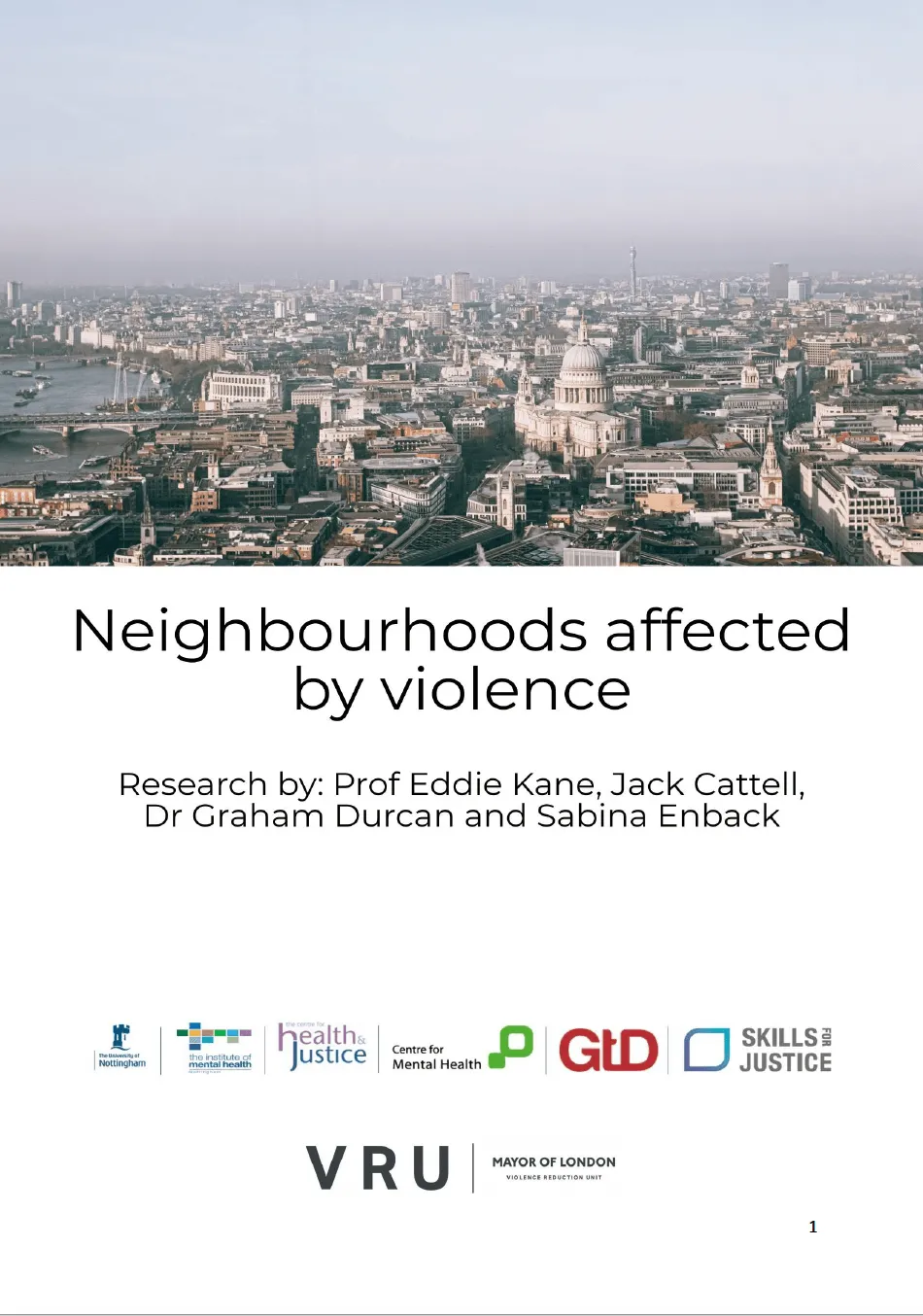
This report builds on the work published in 2020 of the Behavioural Insight Team (BIT). It further develops their findings and approach by widening the analysis of violence and how it correlates across the whole of London and then focusing down on nine selected areas to examine violence and its impacts through the eyes of those who live and work there. We found many of the same issues that BIT had done but also some new areas, such as universities as attractors of violence, that the VRU will wish to examine in more detail. We also identified the need for greater integration of data across agencies and at a much more detailed level than is currently the case to enable better analysis of violence in communities and planning with them for change.
This report identifies some core key themes driving violence based on what participants told us through the interviews, focus groups, surveys and our social media analysis. These include some that are already recognised as corelates of violence, for example, economic and social deprivation, racism in all its forms, substance misuse, higher risk related to age with younger people at much more risk of both experiencing and/or perpetrating violence and the influence of gang cultures. We also identified areas that whilst recognised in some research and pilot projects around the country, have not received the co-ordinated attention they need in London. For example, the negative impact of social media as a focus for expression and organisation of violent behaviour, the need for a co-ordinated focus on improving the built environment, what were seen by many participants as irresponsible housing policies that moves individuals and families who have been involved with violence as victims without support or perpetrators who ‘export’ violence from one area to another.
Other themes related to the way key agencies such as the police, local authorities and health services work. For example, the history of short-term initiatives and pilot projects that have limited or no impact in reducing violence, funding only up-front cost of projects without any consideration of the associated service costs needed to make the project successful and sustainable. People emphasised the need for communities and young people to be equal partners and to be able to co-produce solutions to the problems in their own communities; something people did not always feel was happening or was being prioritised by London-wide agencies. Effective partnership working was also consistently highlighted as crucial to tackling violence, but often people felt the partnership working in their own areas was lacking or could be improved. The focus on place-based developments such as My Ends were seen by those involved as a positive way to address these issues. The programme puts communities at the forefront of tackling violence. It does this through providing the support needed to deliver interventions (designed locally by local people) MyEnds across London in areas affected by high and sustained levels of violence.
Two other broader themes that should focus on future spending and service development, were early intervention and the need for a trauma-informed approach in planning, commissioning and delivering services and community interventions. Exploitation of ever younger children was reported to us and the need to get ahead of this trend seen as essential and while there are some notable trauma-informed violence reduction initiatives, these were reported by those we spoke to as being available in some areas but not others.
While some of what we found was new there was a significant part that was not. An appeal that emerged through the research from individuals and communities was to act on what is known from existing evidence of what works, something that many felt simply has not happened. Rebuilding trust in areas that have seen unsuccessful initiatives, poor partnership working and lack of meaningful community involvement will be a continuing challenge but one that projects like My Ends should help to address. Strengthening the VRU’s move to a focus on place-based working and service commissioning and delivery integration at that level is likely to be the way forward. The VRU has the leading role in setting the way forward and bringing partners along with them.
We make ten recommendations for the VRU to consider, they cover the following: The VRU should:
We recognise that some of the recommendations require elements of delivery by other agencies with the VRU exercising its unique leadership role to bring partners together in a co-ordinated and sustainable way with the equal involvement of communities they serve.